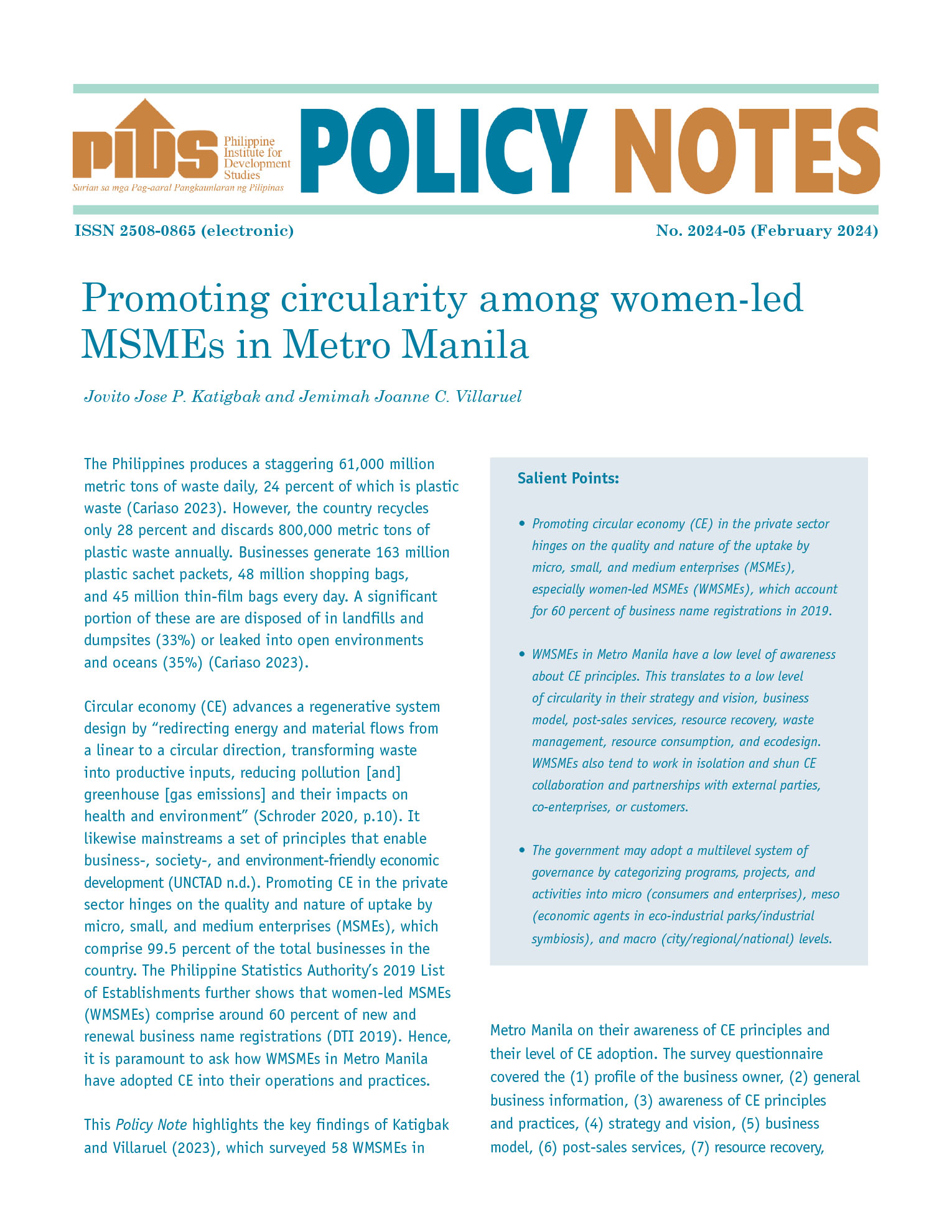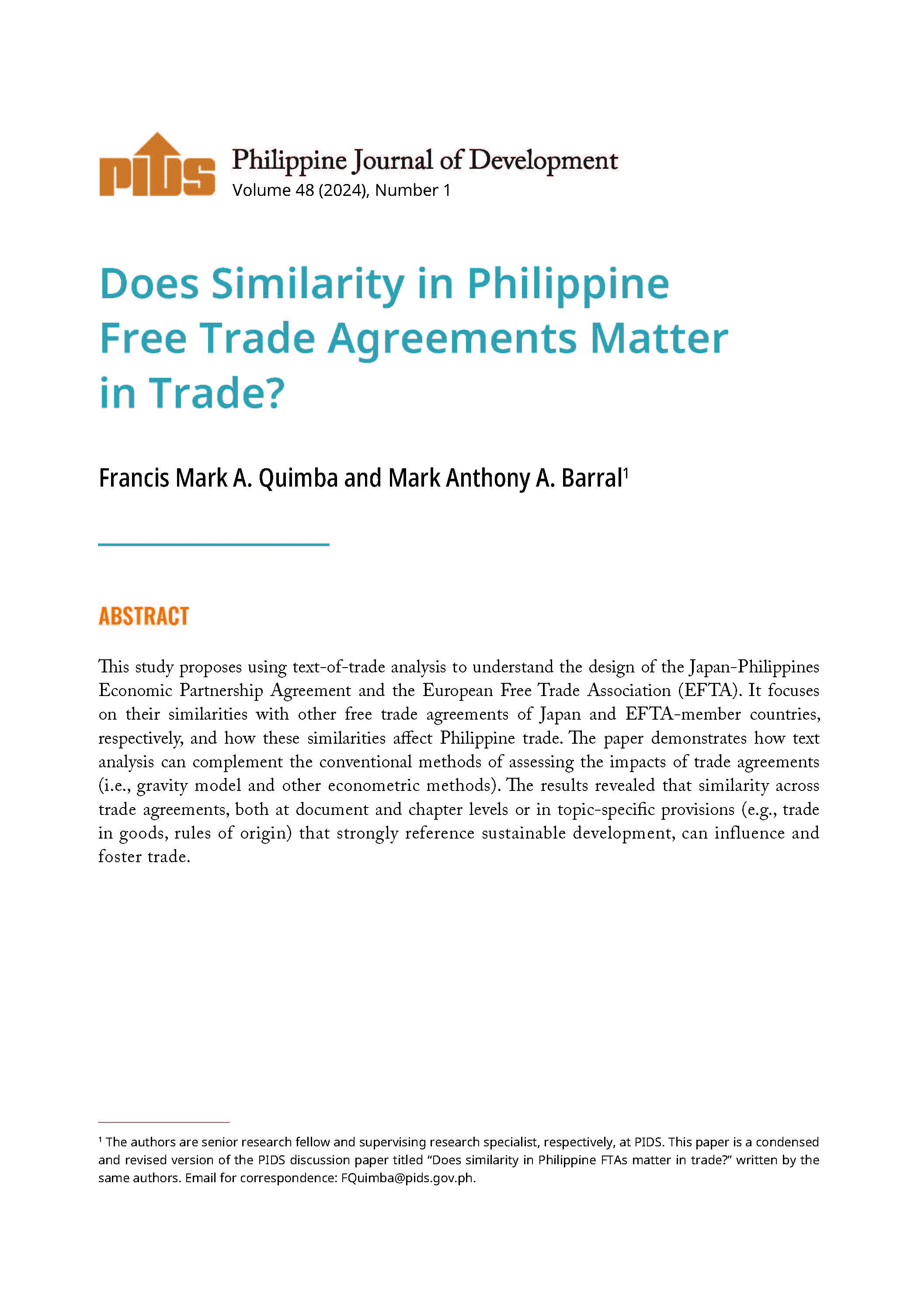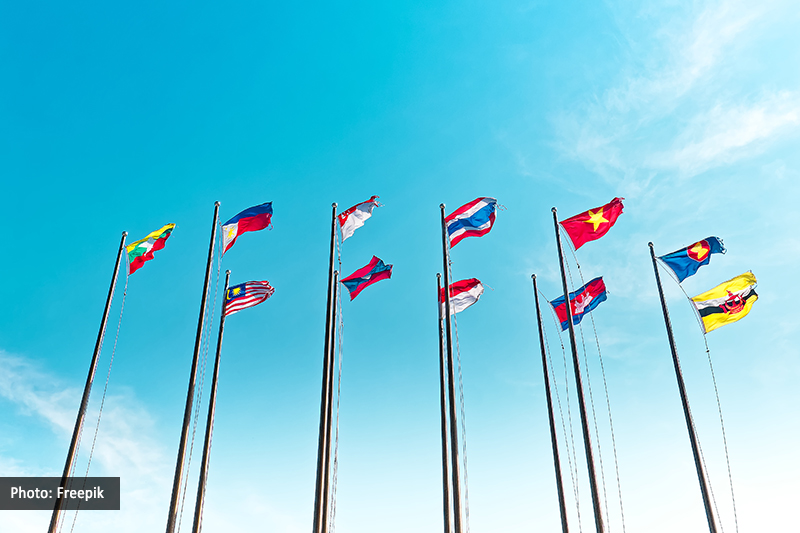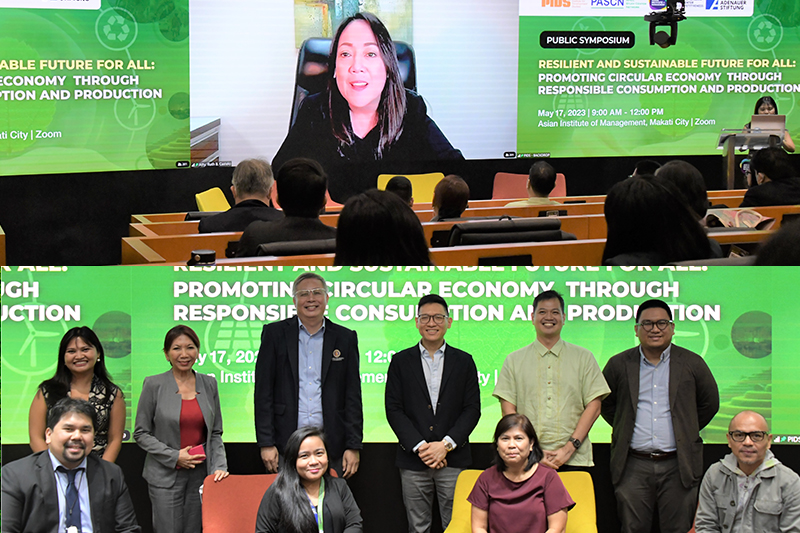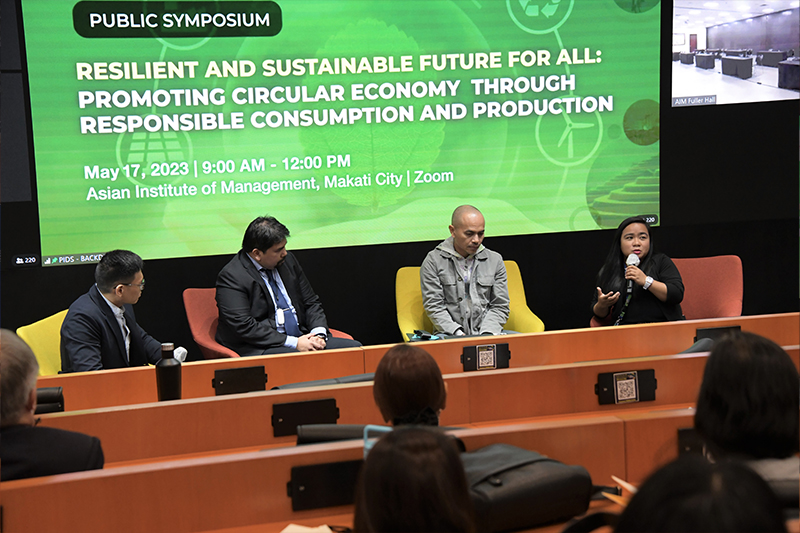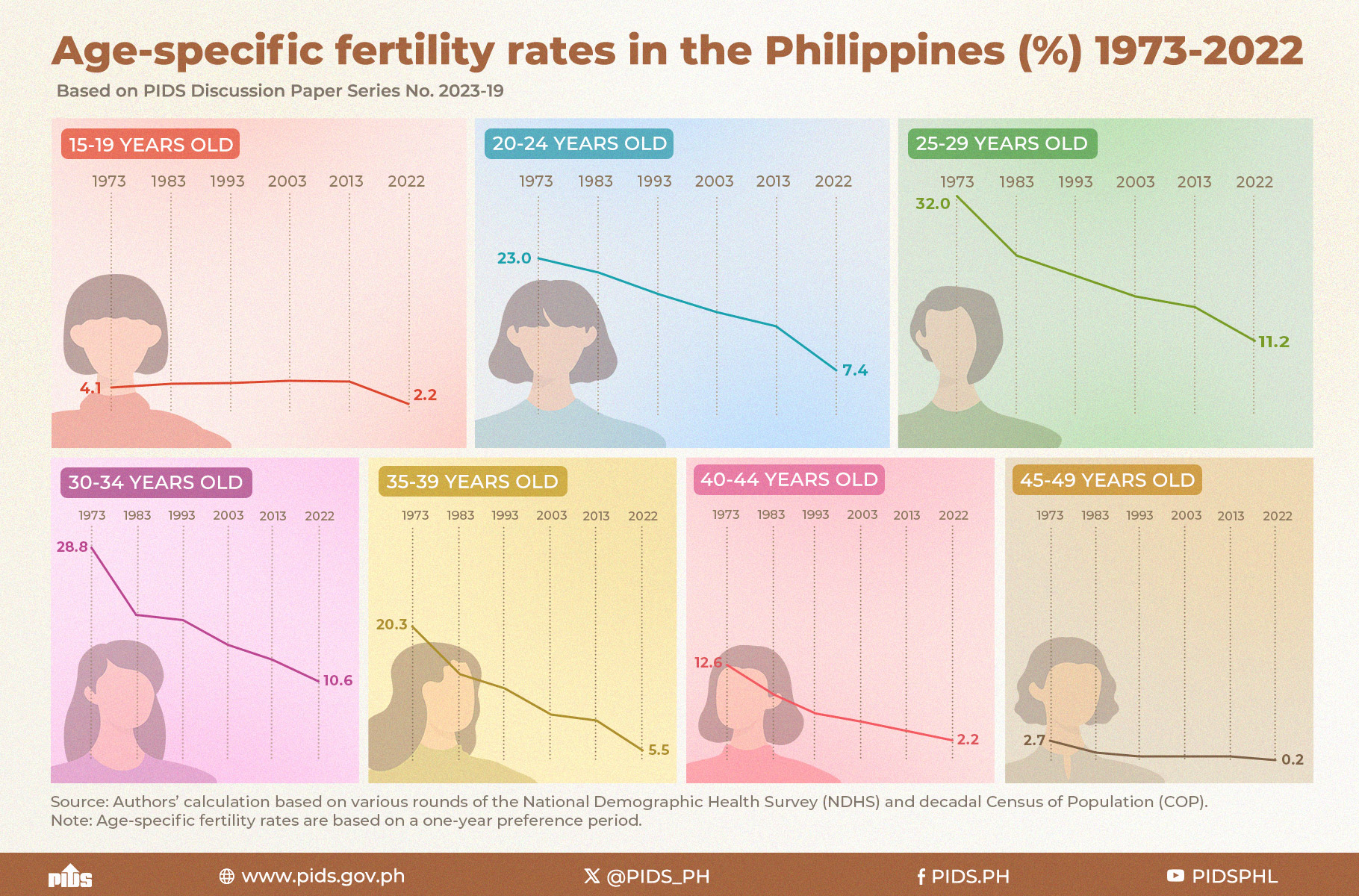MANILA, Philippines — The government will need to step up efforts to encourage firms to utilize free trade agreements (FTAs) to help them become more competitive, according to state think tank Philippine Institute for Development Studies (PIDS).
In a discussion paper titled FTA Utilization in the Philippines: Trends and Determinants, PIDS researchers said as the country looks to pursue trade liberalization with existing and prospective FTA partners, there is a need for its FTA policy to also focus on stimulating the use of preferential tariffs among firms under such deals.
Among the recommendations is to intensify existing programs and formulate new ones to better prepare firms for FTA utilization.
“With firm productivity and knowledge being significant determinants of FTA utilization, increased focus must be given to facilitating the firm growth and providing access to information on FTAs,” the PIDS said.
Despite expectations that substantial reduction of trade barriers under FTAs would encourage firms to take advantage of preferential tariffs, the PIDS study found that the country’s utilization of FTAs has not expanded over the last decade.
It said that while 14.3 percent of exporters used FTAs in 2011, the percentage went down to three percent in 2017, and then recovered to 8.6 percent in 2020.
When it comes to the number of FTA export transactions, this has been on a decline from 135,648 in 2011 to 78,178 in 2014. It recovered in 2015 and continued to increase until 2017, but has gone down to 62,503 in 2020.
“Thus, increased attention must be given to encouraging exporters to increase their utilization of FTAs,” PIDS said.
While the Department of Trade and Industry-Export Marketing Bureau (DTI- EMB) has initiated the Doing Business in Free Trade Areas program, which involves the conduct of information drives to increase firms’ knowledge and awareness on FTAs, the PIDS said the study’s findings indicate the need to intensify efforts to facilitate FTA use.
The PIDS said this could be done by DTI-EMB through the conduct of surveys or regular monitoring to ensure participants are able to actually use FTAs in their trade activities.
“These measures could also be beneficial to constantly evaluate the impediments to FTA use. Through its current programs on MSME (micro, small and medium enterprise) development and firm growth, the government could formulate new targeted interventions, focusing on assisting MSMEs and sectors that could be leveraged to boost the country’s competitiveness and strengthen its position in GVCs (global value chains),” the PIDS said.
In addition, the PIDS said the government must assess the state of competition within industries and closely monitor sectors where there might be potential anti-competitive activities.
The study found that firms in industries with high market concentration could face difficulties in improving their productivity levels, preventing them from participating in foreign markets and using preferential tariffs.
The PIDS also recommended an evaluation of FTAs with Japan, South Korea and Singapore, given low utilization rates.
“In particular, it would be beneficial to determine the leading products traded with these countries under general tariffs, as well as their respective tariff margins in the Philippine FTAs. This could serve as a guide in revisiting existing agreements and identifying areas for further negotiation,” the PIDS said.
Other recommendations made by the PIDS are streamlining the procedures on FTA utilization, ensuring accuracy of exports transaction data, and assessing the impact of non-tariff measures on FTA utilization.


